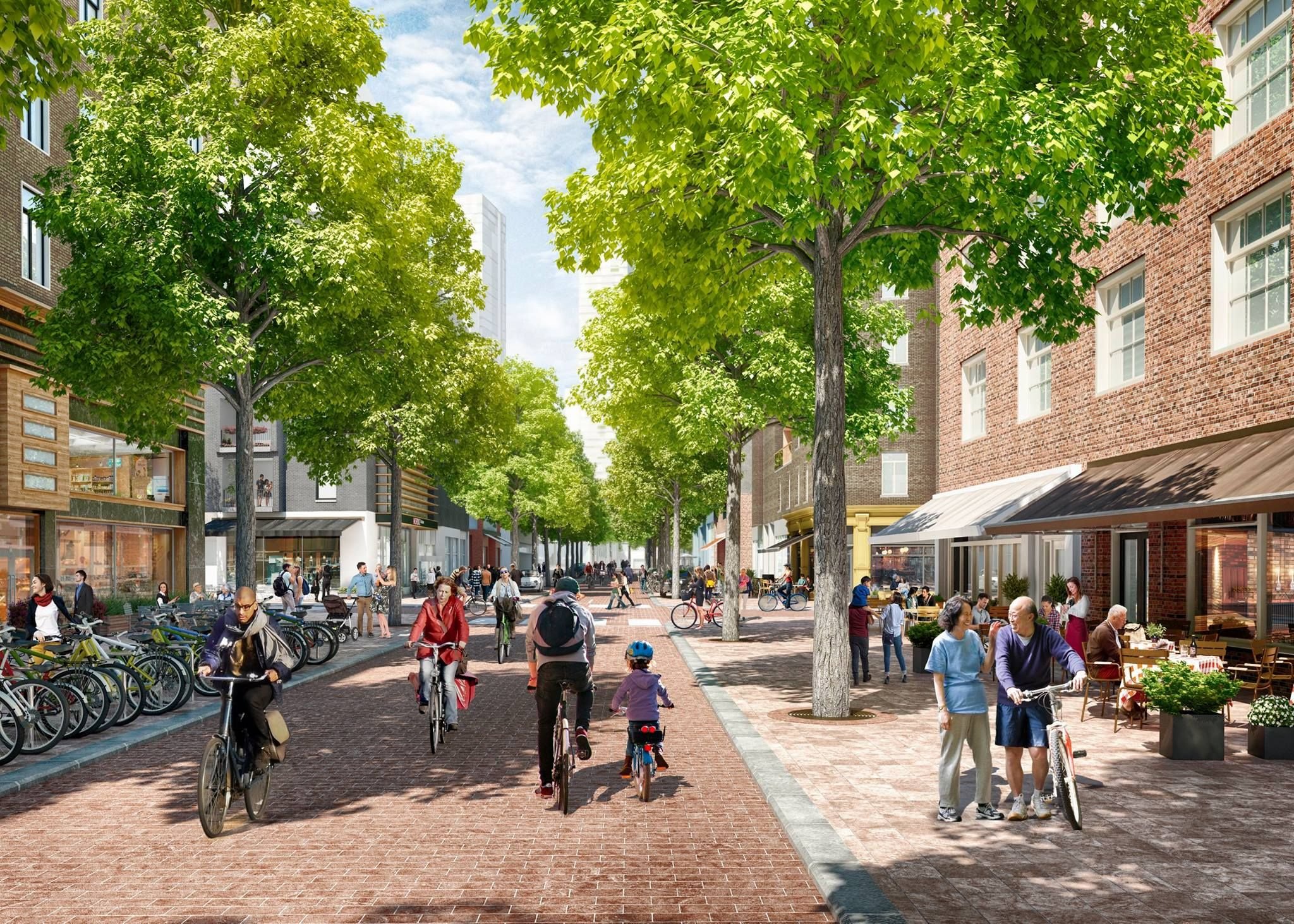Adopted! Climate-Friendly and Equitable Communities ahead!
LCDC votes to unanimously adopt rules
Cities will identify Climate-Friendly Areas where a portion of new housing development will be directed.
More climate-friendly and equitable communities are ahead for Oregon’s eight largest metropolitan areas, including Bend!
Yesterday, the Land Conservation and Development Commission (LCDC) unanimously adopted new rules to guide future development in Oregon’s largest urban areas.
These rules place tackling climate change, providing more affordable housing options, and creating more equitable transportation choices at the center of how Oregon’s cities are planned, built, and funded.
We couldn’t have done it without you.
For over a year, LandWatch has worked to establish a statewide Climate Action Coalition for the CFEC rulemaking process. Time and time again, you showed up, signing on to letters of support and speaking up for a brighter future for our cities and towns - one that tackles climate change head-on.
LCDC, which oversees the Department of Land Conservation and Development, initiated the Climate-Friendly and Equitable Communities (CFEC) Rulemaking in September 2020 in response to Governor Brown’s Executive Order 20-04 to reduce greenhouse gas pollution from the land use and transportation sector. LCDC permanently adopted these rules with minor adjustments yesterday, July 21.
We are excited to see this leadership that puts Oregon on a path toward a more climate-friendly and equitable future.
“It’s time to move forward with bold, transformative actions that tackle climate change head-on. Oregonians are ready for more climate-friendly and equitable communities. Adopting these rules will help Central Oregon’s communities meet the challenge of our time in ways that reduce greenhouse gas emissions and deliver more affordable housing choices and safe, accessible ways to get around town. That is a future that fills me with hope.”
- Corie Harlan, Cities and Towns Program Manager
In Oregon, transportation accounts for 40% of statewide emissions. Street Map of Bend
What does this mean for the future of Bend?
Today’s biggest contributors to climate change are tied to our built environment: where and how we live, work, play and travel. For example, greenhouse gas emissions from transportation are the biggest contributor to climate change nationally. In Oregon, transportation accounts for 40% of statewide emissions.
The CFEC rules aim to do something about this. They will significantly strengthen the state’s transportation and land use planning rules to reduce greenhouse gas emissions and increase equitable outcomes. For example, in Bend we’ll soon have Climate-Friendly areas designated where a portion of new housing development will be directed — and these rules will also help the city plan for and prioritize abundant, high-quality infrastructure projects for biking, walking, and public transit in those areas.
The rules require that communities update their local transportation and land use plans to ensure Oregonians have safer and more comfortable ways to get around that do not require driving long distances to meet daily needs. The rules also aim to improve equity by directing community transportation, housing, and planning to serve all Oregonians, particularly those from under-resourced communities and underserved areas.
When implemented, these rules will:
Increase development in climate-friendly locations, including city centers, town centers, and transit corridors, where housing, jobs, and services are located and the need to drive is reduced;
Increase development in climate-friendly locations, including city centers, town centers, and transit corridors, where housing, jobs, and services are located and the need to drive is reduced;
Improve facilities for walking, bicycling, carpooling, and transit so people can reach destinations without depending on single-occupancy vehicles;
Manage parking to avoid over-building parking, which uses land needed for housing and services, increases housing costs, and pushes housing and services further apart, making it harder to access destinations without a vehicle;
Refocus transportation planning towards a system that provides a broader range of equitable and climate-friendly transportation options rather than emphasizes motor vehicle congestion.
At the intersection of now & the future of Bend
Envision Bend recently launched The Bend Vision Project, an in-depth community conversation about the future of Bend — where it is going and where we want it to be. With a goal to craft a Vision and five-year Action Plan to make Bend a great place for all of its residents, it’s important all sorts of voices and perspectives are involved.
Bend needs complete, vibrant, and healthy neighborhoods accessible to all. Take the Bend Vision Project survey to share your concerns and hopes for Bend’s future.
Whether you share our urgency in tackling climate change, or see the need for more affordable housing options and more car-free ways to get around, your support LandWatch is moving these efforts forward in Bend, Sisters, and beyond.
We have just 10 days left to make the most of our Rise to the Challenge fundraising match. Until July 31, two generous donors are matching donations dollar-for-dollar up to $60,000. Will we meet the challenge? Donate today and help us make the most of our match!




